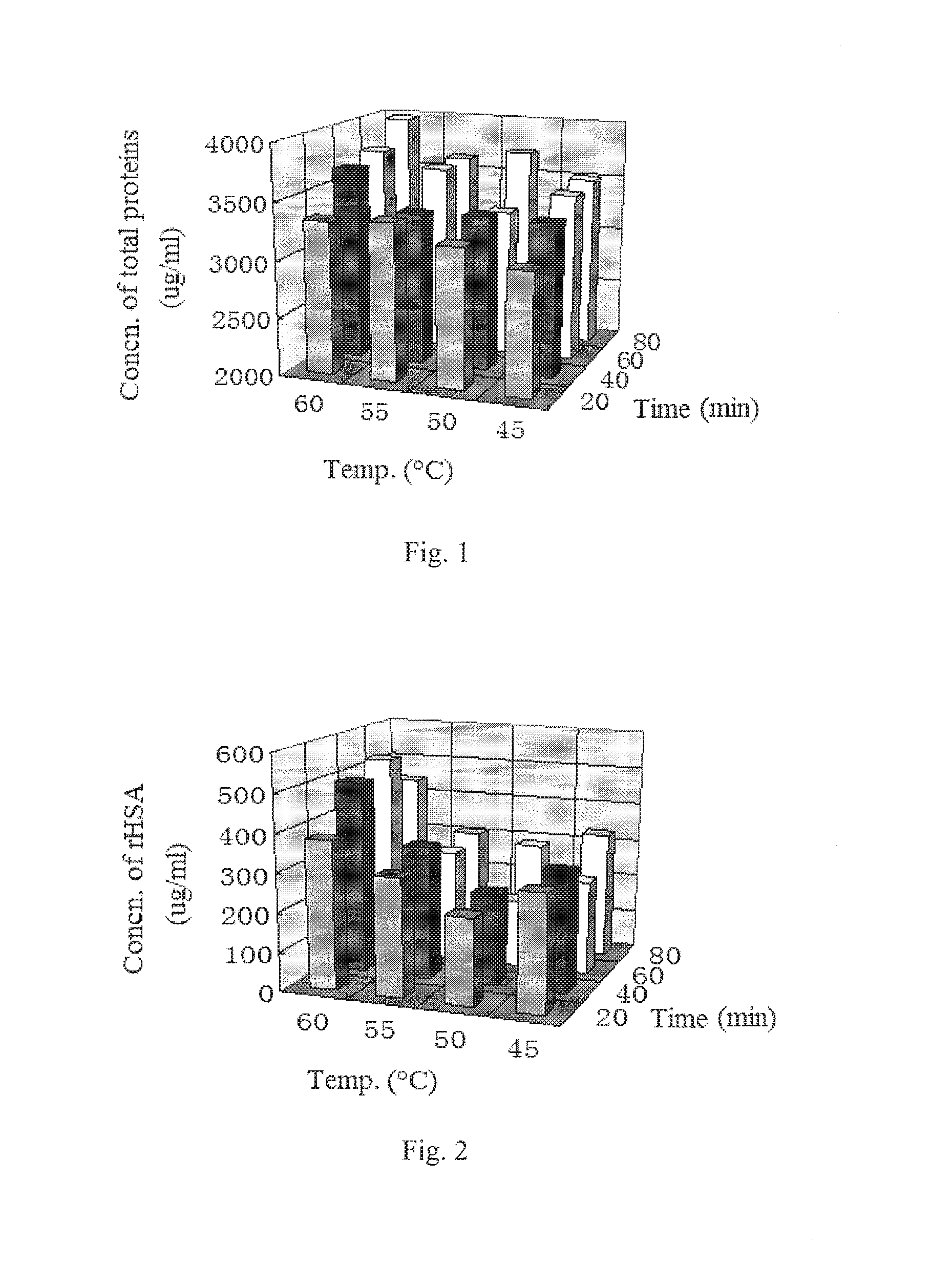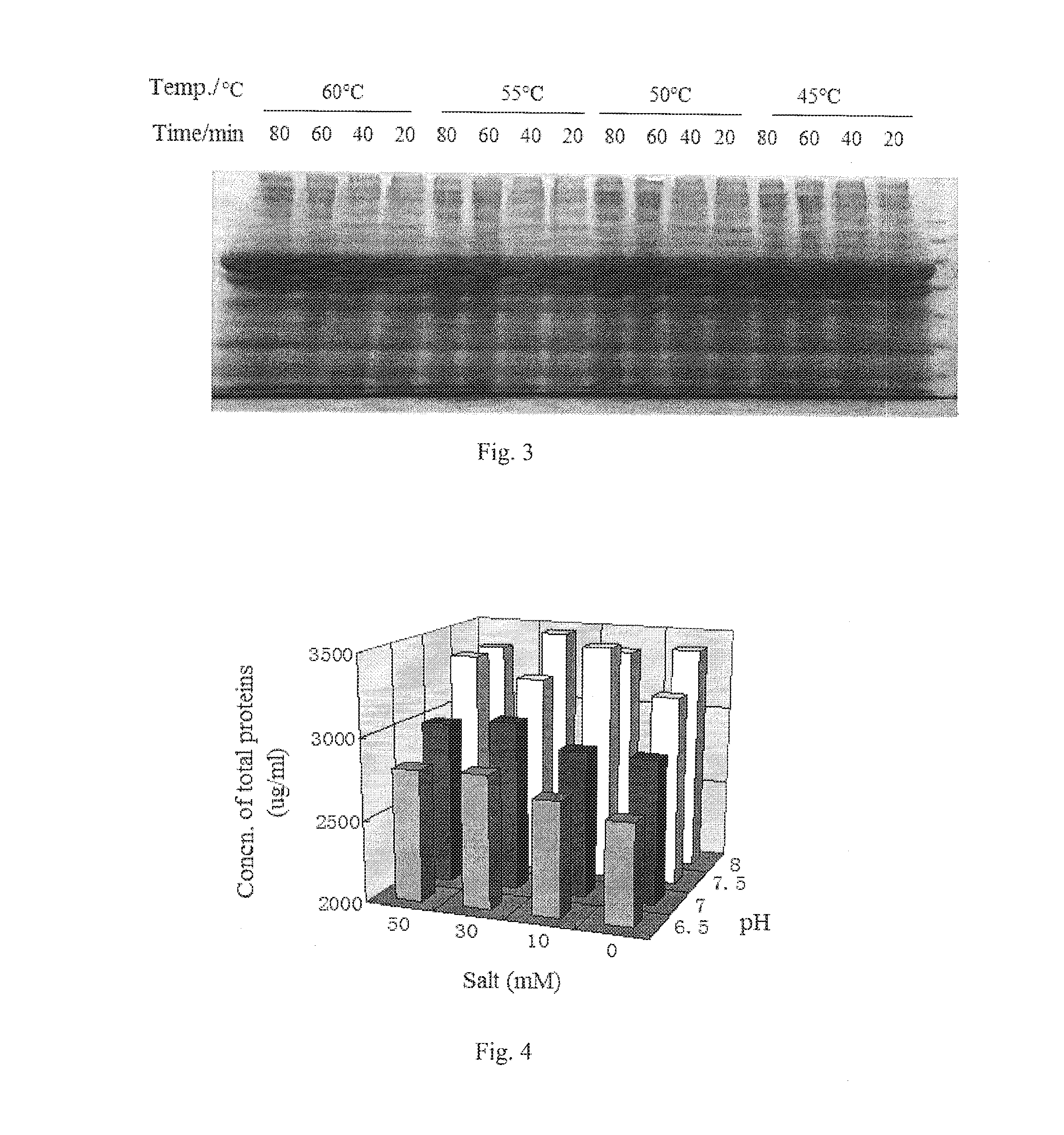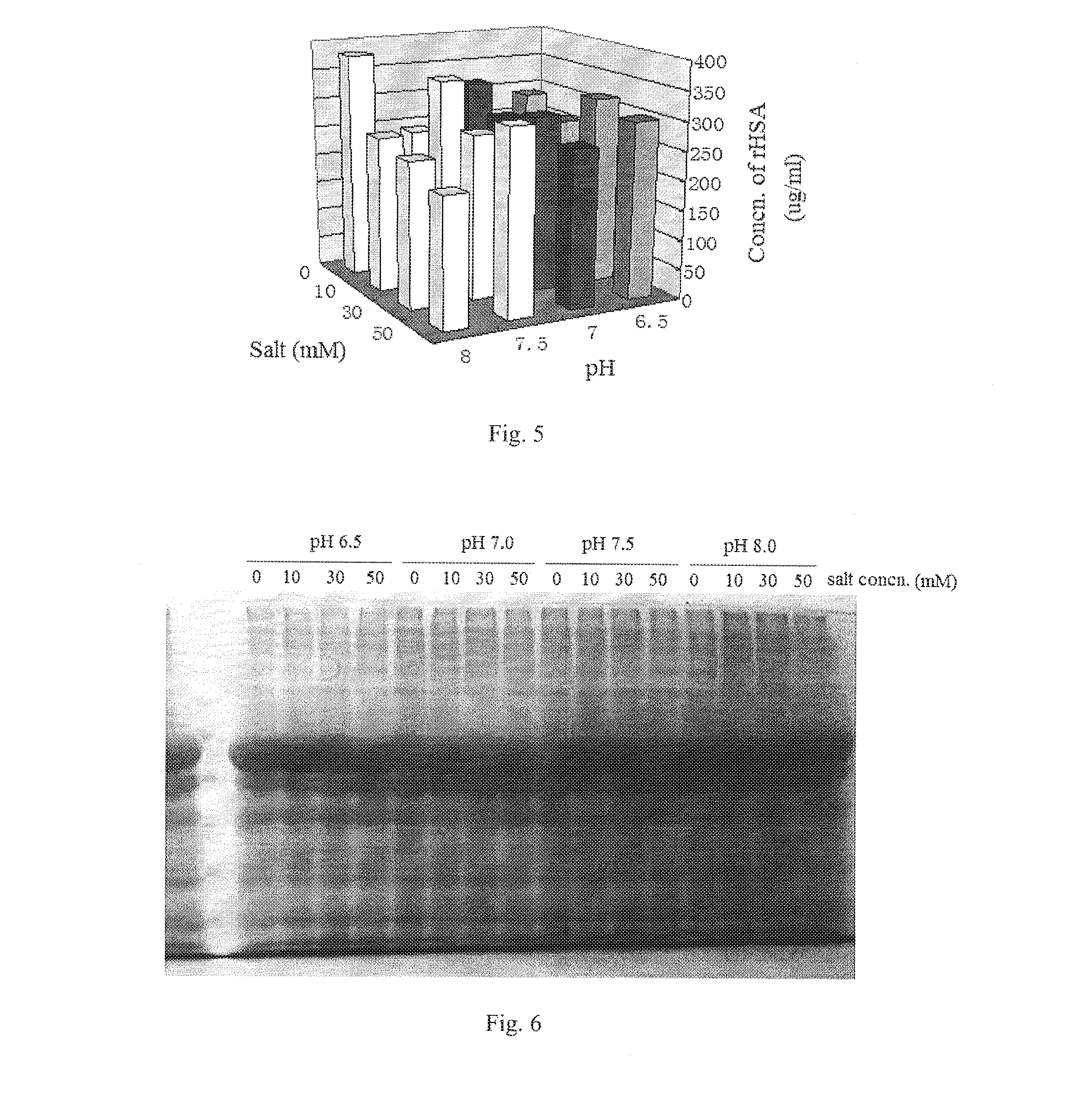Method for extracting recombinant human serum albumin from transgenic rice grain
a technology of human serum albumin and transgenic rice, which is applied in the field of biotechnology, can solve the problems of insufficient plasma source, inability to supply limited blood, and potential risk factors of blood itself, and achieve the effects of reducing cost and extraction volume, maximum efficiency, and high extraction yield
- Summary
- Abstract
- Description
- Claims
- Application Information
AI Technical Summary
Benefits of technology
Problems solved by technology
Method used
Image
Examples
example 1
Extraction of rHSA According to the Improved Method of Present Invention
[0037]Transgenic rice could be prepared according to the method disclosed in Chinese patent application No. 200510019084 of the present inventors. The paddy rice was hulled to obtain half-polished rice and grinded to obtain milled rice with a fineness of 80˜100 mesh. The milled rice was mixed with an extraction buffer in a ratio of 1:5 (w / v, kg / L), and extracted for 1.5 hours at 60° C. The components of the extraction buffer are: 25 mM phosphate buffer, 20 mM sodium acetate, 10 mM ammonium sulfate, 10 mM sodium caprylate; pH 7.5. The resultant mixture was adjusted to pH 4.5 with acetic acid and placed for at least 3 hours to precipitate non-target proteins. Then the resultant mixture was sequentially subjected to pressure filtration using a plate-frame press filter (filter cloth type) and micro-filtration by hollow fiber column with a pore size of 0.22 μm, to obtain supernatants containing rHSA. The concentratio...
example 2
Extraction of rHSA According to the Previous Method in the Art
[0038]Transgenic rice can be prepared according to the method disclosed in Chinese patent application No. 200510019084 of the present inventors. The paddy rice was hulled to obtain unpolished rice and milling to obtain milled rice with a fineness of 80˜100 mesh. The ground rice was mixed with an extraction buffer in a ratio of 1:5 (w / v, kg / t) and extracted at least for 1 hour at room temperature. The components of the extraction buffer are: 25 mM phosphate buffer and 20 mM sodium acetate; pH 6.5. The resultant mixture was adjusted to pH 4.5 with acetic acid and placed for 1 hour to produce precipitation.
[0039]Then the resultant mixture was sequentially subjected to pressure filtration using a plate-frame type press filter (filter cloth type) and micro-filtration by hollow fiber column with a pore size of 0.45 μm, to obtain supernanants containing rHSA. The concentration of rHSA was about 0.314 mg / mL, Compared to the resul...
example 3
Effects of Extraction Temperature and Time on the Extraction Yield of rHSA
[0040]This example employed a constant extraction buffer and performed orthogonal combination on different temperatures (45° C., 50° C., 55° C., 60° C., respectively) and different extraction times (20 min, 40 min, 60 min, 80 min, respectively) to obtain different extract samples. BCA method was used to determine the concentration of total proteins in each sample and ELISA was used to determine the concentration of rHSA in each sample. The results were shown in FIGS. 1 and 2, respectively. Each sample was subjected to SDS-PAGE and the electrophoresis photograph was shown in FIG. 3.
[0041]It can be seen from FIGS. 1 and 2 that with an increase of extraction time and temperature, the concentrations of total proteins and rHSA in the extract of the ground rice tend to increase correspondingly. The extraction temperature had a larger influence on the extraction efficiency than the extraction time. The highest extrac...
PUM
 Login to View More
Login to View More Abstract
Description
Claims
Application Information
 Login to View More
Login to View More - R&D
- Intellectual Property
- Life Sciences
- Materials
- Tech Scout
- Unparalleled Data Quality
- Higher Quality Content
- 60% Fewer Hallucinations
Browse by: Latest US Patents, China's latest patents, Technical Efficacy Thesaurus, Application Domain, Technology Topic, Popular Technical Reports.
© 2025 PatSnap. All rights reserved.Legal|Privacy policy|Modern Slavery Act Transparency Statement|Sitemap|About US| Contact US: help@patsnap.com



